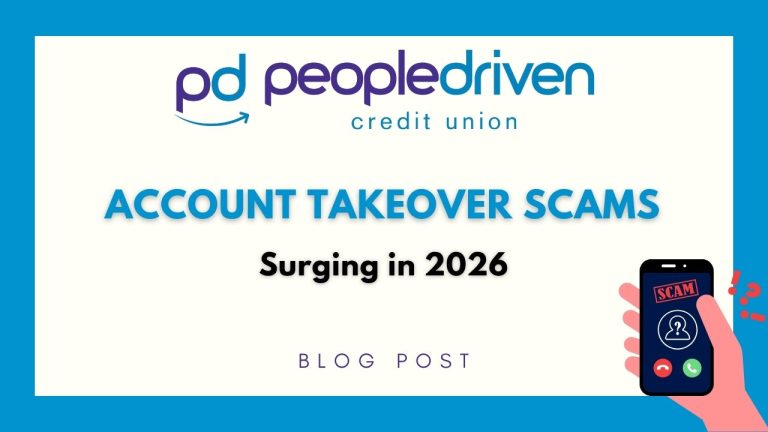From music legends like Snoop Dogg and Garth Brooks to respected military officials, fraudsters pretend to be high-profile public figures to steal money and sensitive information from unsuspecting consumers.

Don’t Fall for Celebrity Scams: How to Spot and Avoid Impersonation Fraud
Scammers are getting more creative and more convincing. Michigan Attorney General Dana Nessel recently reissued a warning about a growing trend: celebrity impersonation scams.
At People Driven Credit Union, we want our members to stay alert, especially when connecting online. Here’s what you need to know to avoid falling victim.
“Garth Brooks Isn’t Asking You for Money”
While it might sound far-fetched, these scams are often elaborate and highly personal. Scammers pose as celebrities or influential figures on dating apps or social media to strike up what seem like genuine conversations. They gain your trust and then ask for money, gift cards, or cryptocurrency.
“While it may be disappointing to hear, you are probably not in a secret, long-distance relationship with Garth Brooks.”
– Michigan Attorney General Dana Nessel
Common Celebrity Impersonation Scams
Here are the most common types of impersonation scams reported:
- Romance Scams: The fraudster pretends to be in love, often claiming to be a celebrity or deployed military member to explain why they can’t meet in person. Eventually, they ask for money.
- “Pig Butchering” or Crypto Investment Scams: Scammers build trust over time and then pitch fake investment opportunities usually involving cryptocurrency that seem exclusive or time-sensitive.
- Fake Merchandise Offers: Victims are tricked into buying “exclusive” merchandise supposedly endorsed by a celebrity, only to never receive the item.
- Deepfake Audio/Video Scams: Scammers can use artificial intelligence to create lifelike impersonations of celebrities or loved ones. These fakes might call or send videos asking for urgent help or money.
How to Protect Yourself (and Loved Ones)
Whether you’re active online or have a loved one who is, follow these safety tips to reduce your risk:
Slow Down and Ask Questions
- If someone online is pressuring you to act fast, don’t.
- Talk to someone you trust before sending money or personal info.
Guard Your Personal Info
- Keep conversations inside the app or platform—don’t share your email, phone number, or financial details.
- Never send Social Security numbers, banking info, or copies of your ID to people or websites you can’t verify.
Never Send Money to a Stranger
- Don’t send money, gift cards, wire transfers, or cryptocurrency to someone you’ve never met in person.
- Don’t open new bank accounts or reship packages for online acquaintances—these are often signs of criminal activity.
Don’t Trust Caller ID or Voice Alone
- Caller ID can be spoofed, and scammers can fake someone’s voice using AI.
- If a voice or video call seems suspicious, hang up and verify through a trusted contact.
Report a Scam
Report it immediately if you or someone you know may have been targeted. You can file a complaint with the Michigan Department of Attorney General:
Consumer Protection TeamP.O. Box 30213
Lansing, MI 48909
Toll-Free: 877-765-8388
Phone: 517-335-7599
Fax: 517-241-3771
Submit a complaint online
We’re Here to Help
If you suspect your PDCU account or personal information may have been compromised, call us immediately at (248) 263-4100. Our team can help secure your accounts, review transactions, and walk you through the next steps.
Let’s work together to stay safe and protect what matters. Don’t fall for celebrity scams. When in doubt, slow down, ask questions, and never send money to someone you don’t know celebrity or not.
For more information on how to keep you and your personal information safe, visit our webpage on fraud alerts.





